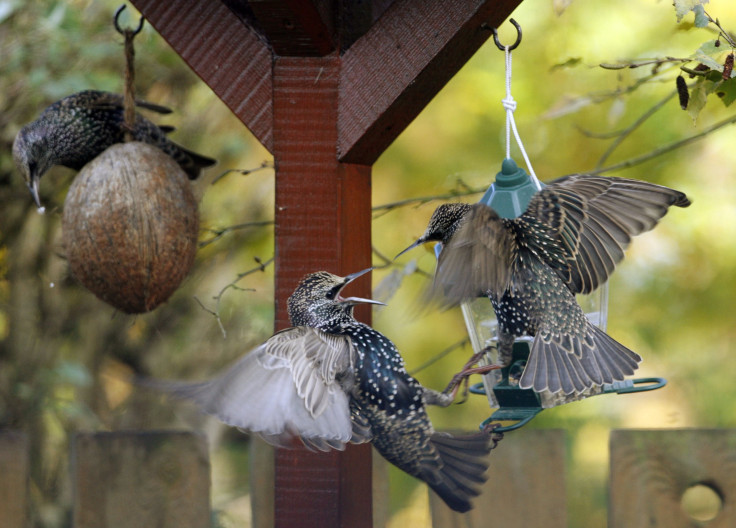Small Animals See Slow-Motion World, Says New Study

The actions of the day may appear a little delayed for the planet's smallest animals.
Small animals typically sense time as though it is passing by in slow motion, says a new study published by a research team in the journal Animal Behavior. As a result of this decreased timescale, they view movement more slowly than larger animals -- allowing them to more easily escape large predators.
"The ability to perceive time on very small scales may be the difference between life and death for fast-moving organisms such as predators and their prey," said lead author Kevin Healy, at Trinity College Dublin located in Ireland.
For the study, the team analyzed the range of time perception for several types of animals. They combined datasets from other teams that had previously completed studies using a technique called critical flicker fusion frequency -- which is used to measured the rate at which the eye processes light, BBC UK reports.
The researchers then placed the results on a graph, allowing the team to uncover a strong pattern between the size of animals and how rapidly their eyes responded to new visual information. Though the study concentrated mainly on vertebrates, researchers did discover that specific fly species' eyes reacted over four times faster than the human eye.
"We are beginning to understand that there is a whole world of detail out there that only some animals can perceive and it's fascinating to think of how they might perceive the world differently to us," Dr. Jackson said.
This difference in visual perception speeds is seen in humans as well. Young children are able to see quicker than older adults, leading to a difference in abilities such as eye-hand coordination, Popular Science reports. The new study also exposes the mental abilities of small animals -- which sometimes get a bad rap for being dull, slow thinkers.
"Having eyes that send updates to the brain at much higher frequencies than our eyes do is of no value if the brain cannot process that information equally quickly," said Graeme Ruxton, of the University of St Andrews, Scotland. Ruxton was co-author for the study. "Hence, this work highlights the impressive capabilities of even the smallest animal brains. Flies might not be deep thinkers but they can make good decisions very quickly."
But not all smaller species sport quick visual reflexes. Animals like the European eel and blacknose shark had some of the slowest visual systems in the study. In those instances, though, the animal's slower metabolisms caused a decrease in the speed of their visual systems.
© Copyright IBTimes 2024. All rights reserved.
Request a Correction
Join the Discussion




















